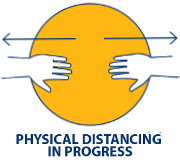|
jm20 posted:Paying into your service contribution also gives you the flexibility to retire when you reach your service requirement, or work a bit longer to the CPP age if you'd like. True, if it wasn't for our pension contribution deducted from our paycheck, our cashflow would be $2000+ after expenses every month. I'll weigh my options with consideration from your perspective. Funny how $6000 can be difficult to decide on.
|
|
|
|

|
| # ? May 14, 2024 06:16 |
|
If it's unlikely I'll stay in Canada long term and I'm already in the 29% tax bracket there's no reason not to max my RRSP before making any TFSA contributions, true or false?
|
|
|
|
the talent deficit posted:If it's unlikely I'll stay in Canada long term and I'm already in the 29% tax bracket there's no reason not to max my RRSP before making any TFSA contributions, true or false? there's probably more math you could do on it, but the TFSA is something that will have a bigger payout later (if you're in Canada and paying taxes here), but yeah, maxing RRSP is probably better, especially if you won't be in Canada long term (or ever again, really)
|
|
|
|
If you're going to the US, the IRS doesn't recognize the TFSA as a tax shelter.
|
|
|
|
So it's been a while but I finally have the sustained reliable cash flow to start growing my TD E-series poo poo. Right now I just have 3 of the e-series, the US one, international, and Canadian. About 50-40-10 respectively. I'm going to be contributing $250 bi-weekly (pay day) and wondering if I'm still more or less doing the right thing to just keep buying more funds in more or less that mix?
|
|
|
|
Mortgage renewal time. Ugh.
|
|
|
|
|
Welp, I manually withdrew my TFSA and put in a funds purchase order 30% bonds/10% CAN/30% US/30% Intl. I just got an e-mail letting me know they did not go through the purchase because it doesn't match my investor profile. I don't remember what my profile was, but I'm pretty sure it was along those lines for equities. 0.33%-0.5% MER on ~20 000$ is still around 60-100$ worth of expenses. I was planning on saving more into indexed funds before making the switch to ETFs, but if I'm going to pay what little management and misc. fees I have to just to be loving told what I can purchase or not, I think I might as well skip straight to ETFs after all. I haven't actually sent in my RRSP transfer form yet, too, so I can reconsider. e: Is Questrade still the goon choice of discount broker? Is it possible to open an account without committing to anything, just to see what the UI looks like? (TD's is kind of garbage.) Jan fucked around with this message at 19:20 on Apr 5, 2016 |
|
|
|
Jan posted:e: Is Questrade still the goon choice of discount broker? Is it possible to open an account without committing to anything, just to see what the UI looks like? (TD's is kind of garbage.) http://www.questrade.com/trading/free-trial
|
|
|
|
Landsknecht posted:there's probably more math you could do on it, but the TFSA is something that will have a bigger payout later (if you're in Canada and paying taxes here) Why do you say this?
|
|
|
|
blah_blah posted:Why do you say this? Well it really depends on how much you're currently earning, planned retirement income, etc, but especially if you're young and not earning a fair amount (over 100k or so), a TFSA makes a lot of sense (especially since as you're young you have time to grow it). Your TFSA is after-tax income (including anything you make off of how you invest it), and you'll never be taxed on anything you withdraw. If you contribute the yearly maximum from around age 22 and can eek out something around 5-7% yearly you'll have hundreds of thousands if you do this until retirement at let's say 67 (right around $1mil). This is $1mil in tax free money, which would allow you to withdraw $50k/year, the equivalent of about $75k before taxes (in Ontario or BC), and still earn returns on everything in there. Now I know that a 5%+ return is pretty hard now, but it would be pretty crazy for interest rates and returns to steadily be this bad long-term (if that happens we'll have more to worry about than TFSA vs RRSP). I guess the RRSP wouldn't be a bad in-canada option, but you have a lot of restrictions on what can be done with it, and it will be taxed at one time or another. Forced withdrawals also aren't the greatest, you don't have those with TFSA.
|
|
|
|
He's already in the highest tax bracket (at least, in 2015 he was), so the RRSP allows for the option of deferring taxes from a high bracket and paying taxes in a much lower bracket in the future (assuming that he can structure his income in such a way to take advantage of that in retirement). He probably should be contributing to his TFSA as well but RRSPs have a much better value proposition for high income earners in general.
|
|
|
|
My spouse and I have $85,000 doing nothing. Combined, we have ~$80,000 "room" for TFSA contributions, and $150,000 annual income. We save at a rate of roughly $3,500 per month. My gut says to open a tax-free investment account and buy TSX:H and sit on it. Is this a terrible plan? We were saving the money to buy a house, but now I'd rather wait for the bubble to pop. I don't particularly like the concept of buying a managed fund because I don't really like investing, but holding Hydro One seems like a no-brainer. My past two gut instincts have done well (Ford in 2008, Tesla in 2013), but I've never actually bought stock.
|
|
|
|
Shaky Premise posted:My spouse and I have $85,000 doing nothing. Combined, we have ~$80,000 "room" for TFSA contributions, and $150,000 annual income. We save at a rate of roughly $3,500 per month. Yes, putting all your money into one equity is a terrible plan.
|
|
|
|
You should visit this page http://canadiancouchpotato.com/model-portfolios-2/ and pick between either the TD eSeries index funds or Vanguard ETF's to start. Depending on your risk you can change your bond allocation to suit, but you should carefully consider your confidence in the Canadian market (2% global) and your allocation to Canadian equities. Keep in mind you likely live in Canada, get paid in Canadian denominated currency, and could possibly own Canadian real estate, all of which are exposed to the Canadian market and potential downturns. Or you can go on your gut instinct and ride it into the sunset
|
|
|
|
Alright, that's food for thought. I'll do some more reading. I don't have any confidence in the global economy, but I do have confidence that the Ontario Liberal Party is corrupt enough to ensure that Hydro One remains profitable. I really dislike gambling, so the whole idea of investment is distasteful. It's hard for me to swallow the concept that betting on more things is safer than betting on fewer things, but I can see how it's true.
|
|
|
|
Shaky Premise posted:Alright, that's food for thought. I'll do some more reading. Your reasoning is contrary to your initial plan. Investing in the world's markets on aggregate isn't gambling. Investing in one company is...
|
|
|
|
Didn't 2008 show that even investing in the aggregate a gamble?
|
|
|
|
Betting on fewer things opens you up to extreme volatility. This volatility obviously goes both ways, but do you want to really risk what could be several years of post tax/budget savings? Thinking of your nest egg as a denomination of time to accrue always gives me personally some pause when I make adjustments. Just remember that with volatility you may be the one holding Valeant, Nortel, and even Bre-X. I talked to quite a few people that lost their shirts on Nortel.
|
|
|
|
Shaky Premise posted:Didn't 2008 show that even investing in the aggregate a gamble? In the short term yes, but long term no.
|
|
|
|
So if I'm waiting for the housing bubble to pop (at which point I would liquidate), then investing now is a bad idea overall then?
|
|
|
|
Shaky Premise posted:Alright, that's food for thought. I'll do some more reading. I own a bit of Hydro One just for the novelty but there are a few things that would give me nightmares if I invested everything I own into it. a) They'll be dumping massive amounts of shares onto the market at unpredictable times in the next two years. b) The next government might decide to sell 100% instead of 60%. 60 seems kind of arbitrary. c) The government is getting a ton of flak for hydro rates and hydro one, they might not have political room to increase rates that much higher. d) Hydro One has been investing in pensions rather than infrastructure according to the AG, they have a lot of expenses coming up. e) I think the government removed oversight and ownership because it was a shittily run company and it was reflecting badly on the OLP. Would a province with $120b revenue sell their electricity monopoly for $4b if it was a well run profitable company? If you really want to keep your money in Canada, VCN. I like VUN and VXC personally because they're priced in USD. House and everything is all invested in Canada already so I don't see the need to own stock here.
|
|
|
|
Does anyone have any experience with the mutual funds offered by Worldsource / Coast Capital Savings in Vancouver? In late 2014 I decided that I should be an adult and stop storing all my savings in my chequing account, so a financial advisor at Coast Capital Savings advised me to put my savings into mutual funds sheltered in my TFSA, since I have no plans on using the money any time soon. I ended up putting 15,000$ of my savings into this "balanced" plan, 5000$ (+500$/mo) into this "growth" plan, and keeping 5000$ in my normal TFSA. Since then, the mutual funds have performed spectacularly poorly and as a first-time investor, I am very anxious seeing net negative values despite putting in money every month. Meanwhile, the plain TFSA grew a couple hundred bucks.  As of late last year, I also put in a 5000$ into the above "balanced" plan as RRSP contributions on the advice of the same advisor at CCS. It was my first time making RRSP contributions. I'm planning for these savings and continuing contributions to be for my retirement many years from now (I'm 28), so I'm trying to convince myself that things will smooth out and the long-term gains will prevail, but as a first-time investor it is making me nervous seeing my savings do so poorly. Should I stick with these pre-made investment plans? Or should I buckle down and start managing them myself? I don't know the first thing about investments so the thought of handling it myself and potentially losing all my money is very intimidating. (on the plus side, I paid off my student loans this year so I can start to save/invest the extra 500$/mo that used to go towards those payments) Tipps fucked around with this message at 17:04 on Apr 8, 2016 |
|
|
|
Tipps posted:Does anyone have any experience with the mutual funds offered by Worldsource / Coast Capital Savings in Vancouver? You are getting hosed by your financial advisor with those MERs.
|
|
|
|
Ikantski posted:If you really want to keep your money in Canada, VCN. I like VUN and VXC personally because they're priced in USD. House and everything is all invested in Canada already so I don't see the need to own stock here. So I see that VCN pays dividends. Cursory googling suggests that this means that investors get paid regularly based on stock price. VCN says it pays 2.63% of stock price, so if I held $80,000 in stock, it would pay out $2,100 4 times a year? How are dividends paid? Do they mail a cheque or something? I presume that they won't be tax-free even if they came from a tax free investment account? Also, how does the timing of dividend payments affect stock price? I assume the price would rise immediately before payout, then promptly fall immediately after?
|
|
|
|
The dividend VCN issues is just a collection of all the dividends issued by the stocks held by the ETF over the previous quarter. Those dividends are set by the companies, are subject to change at any time. There will be variation from year to year on the dividend issued by VCN, but because it holds so many stocks, it shouldn't fluctuate wildly. With Questrade anyway, the dividend shows up as cash in your account a week or so after it's issued, and if it's in a tax sheltered account, you don't pay tax on it. The stock price in theory doesn't rise in anticipation of a dividend, it rises over time as the companies accumulate the cash that will eventually be used to pay out a dividend. On the day the dividend is issued, the stock will open at exactly the closing price of the previous day minus the dividend amount. I assume most of us just buy the shares again with the dividend cash, making the whole exercise fairly useless. Kreez fucked around with this message at 17:39 on Apr 8, 2016 |
|
|
|
Shaky Premise posted:So I see that VCN pays dividends. Cursory googling suggests that this means that investors get paid regularly based on stock price. VCN says it pays 2.63% of stock price, so if I held $80,000 in stock, it would pay out $2,100 4 times a year? Dividends are typically given as an annual rate based on the previous 12 months so it's 2.63% annually. This number changes quite a lot since dividend payments are rarely static. Lots of ETFs will also have a much larger than normal payout at the end of the year due to return of capital which can skew the rate. Vatek fucked around with this message at 17:54 on Apr 8, 2016 |
|
|
|
Vatek posted:You are getting hosed by your financial advisor with those MERs. Can/should I pull the money out of the mutual funds and just keep them in the TFSA without having it affect the contribution limit? What is the best way to go about getting un-hosed?
|
|
|
|
So the sense I'm getting here is that it's of minimal importance whether or not a fund pays dividends?
|
|
|
|
Shaky Premise posted:So the sense I'm getting here is that it's of minimal importance whether or not a fund pays dividends? Dividends are pretty great. Most ETFs will have a DRIP plan you can register for that means the dividends are automatically reinvested into more units which accounts for a lot of the compound gains in a portfolio over time. Dividends can also help offset a lovely year where the stock price stays flat or declines. Tipps posted:Can/should I pull the money out of the mutual funds and just keep them in the TFSA without having it affect the contribution limit? Selling the funds at a loss will impact your contribution limit, but the longer you hold those poo poo funds the more the MERs are going to eat into your return. Anything over 1% (maybe even 0.5%) is complete garbage that is designed to pay the fund issuer, not you. Vatek fucked around with this message at 18:13 on Apr 8, 2016 |
|
|
|
Vatek posted:Dividends are pretty great. Most ETFs will have a DRIP plan you can register for that means the dividends are automatically reinvested into more units which accounts for a lot of the compound gains in a portfolio over time. Dividends can also help offset a lovely year where the stock price stays flat or declines. But in theory, if a company didn't issue dividends, the stock price would be higher by the amount of the "unpaid" dividends, making the return identical for the stockholder, right? Or am I completely missing something?
|
|
|
|
Kreez posted:But in theory, if a company didn't issue dividends, the stock price would be higher by the amount of the "unpaid" dividends, making the return identical for the stockholder, right? Or am I completely missing something? No, that's right in a very broad sense. Of course what the business ends up doing with those retained earnings matters a lot too. Sometimes dividends make retail investors a bit nutty, though. Like around 2010 or so people were very excited about investing in the yellow pages because the dividend was large compared to the stock price.
|
|
|
|
Kreez posted:But in theory, if a company didn't issue dividends, the stock price would be higher by the amount of the "unpaid" dividends, making the return identical for the stockholder, right? Or am I completely missing something? In terms of pure book value, if the company pays out $1000 dollars in dividends then it's worth $1000 less, and the market automatically adjusts the quote price and outstanding orders automatically. In terms of the long-run effect on the stock price, however, it's a completely different story. A lot of it comes down to the psychological factors of stock pricing: in a given company, how much do investors value $1 worth of dividends vs $1 worth of retained earnings? That being said, ETFs are somewhat special in that they always pay out the dividends of their constituent holdings. You don't actually have the option of choosing between, say, one S&P 500 ETF that pays dividends and one that doesn't. Vatek fucked around with this message at 19:58 on Apr 8, 2016 |
|
|
|
So I'm going to be a new member of the workforce soon making real money, and I've always just trusted my parents with savings and financing. But I figure its time I learn how to do this on my own. Is the OP still relevant? it's about 3 years old. My situation:
My questions: What are the properties of a bank/savings account that I should look into? Since my BMO student account will run out, and there seem to be so many different options, traits, trade-offs in different banks and different accounts. I'm having a bit of decision paralysis and am not sure which way to go. Which credit card features to get? I currently have a basic regular credit card that has the SPC (Student Price Card) attached to it and don't know which options should be taken by someone in my position. (new worker fresh from school) I want to travel somewhere in the next 5 years preferably overseas so I reckon I should start saving up a little by little starting now. Are there investing options for that short of a time period or would it just be best to let it sit in a savings account?
|
|
|
|
|
Dividend question. I've held a small Couch Potato portfolio of index mutual funds for a couple years through RBCDI, within my RRSP. <10k RBF556 - Canadian Index RBF557 - US NBC839 - International And a bond index. I've never seen any sign of dividends. Is this because any potential payout gets automatically spent back into the fund itself?
|
|
|
|
Tipps posted:Can/should I pull the money out of the mutual funds and just keep them in the TFSA without having it affect the contribution limit? Do a bit of reading here http://canadiancouchpotato.com/couch-potato-faq/ The way I see it, you're constantly losing contribution room with those high fees (MER), compared to being in ETF's or index funds with reasonable fees. If it's TFSA, I'd sell and withdraw the cash. You'll get contribution room back equal to what you took out the following January. If any was in RRSP, you'll need to look into a transfer in kind. The bank or institution you're moving to will be glad to help with this. If you really don't want to worry about things, Tangerine's TFSA fund is the simplest. Put money in, and that's it. MER is 1% Next up is TD e-series. A bit more involved, but still simple enough. Usually done by going into a branch, opening a TFSA mutual fund account, then having it converted to an e-series mutual fund account. Or directly opening up a TD waterhouse self directed TFSA account. The later has a $25 annual fee for balances below 25K. You'll need to purchase shares of the funds yourself, in the desired ratio, but now your MER is down to ~0.5%. http://www.tdcanadatrust.com/products-services/investing/mutual-funds/td-eseries-funds.jsp#what-is-it The end game, is ETF. ETF funds are very similar to the e-series, but carry much lower fee's. 0.25% is a high MER when it comes to ETF. You buy these through an online broker such as quest trade. It used to be recommended for higher balances, when it was more common to pay $10 per purchase. Now it's common for the purchase to be free, and only charged on the sale, making it much closer to the e-series. Once it's set up, it's very simple to handle your own investments. The hardest part is keeping the discipline to stick with it through those inevitable down times, keeping to your ratio's, and regular contributions. Much easier if you think of them as stock sales. Your new contributions are getting you that many more shares for the same dollar.
|
|
|
|
Golluk posted:Next up is TD e-series. A bit more involved, but still simple enough. Usually done by going into a branch, opening a TFSA mutual fund account, then having it converted to an e-series mutual fund account. Or directly opening up a TD waterhouse self directed TFSA account. The later has a $25 annual fee for balances below 25K. You'll need to purchase shares of the funds yourself, in the desired ratio, but now your MER is down to ~0.5%. It's also far easier to open an account and move to an online broker (at least Questrade, in my experience) than it is to open a loving TD e-Series account that'll ask you to fill in and mail three paper forms, only to condescendingly tell you what you should do with your money. All of this for almost twice the MER!  Just go ETF. Jan fucked around with this message at 05:12 on Apr 11, 2016 |
|
|
|
Chillyrabbit posted:So I'm going to be a new member of the workforce soon making real money, and I've always just trusted my parents with savings and financing. But I figure its time I learn how to do this on my own. Fee's are you're biggest thing to watch for. As for a savings/checking account. PC Financial, Tangerine, or a Credit union are popular. Personally I use PC, free deposits/withdrawals from any CIBC ATM. For credit cards, my personal preference at the moment is Tangerine Mastercard. No fee's, decent website, 2% cash back in up to 3 categories that are rather broad, 1% in everything else, and it automatically goes against your balance each month. I'd also get an Amazon Visa for a back up/online US purchase card. It has low currency exchange fees, 1% cashback on everything, and again, no annual fees. Either way, just make sure you always pay off the balance due each month. 20% annual interest is no joke. Keep a month to two months total expenses in your checking account, another 4-5 months expenses in a savings account (0.8% interest is better than nothing). Figure out how much you want to spend on your trip, roughly when, and start putting aside money for that into the Savings account. Any savings <5 years just stick to those "High Interest" savings accounts. If you still have money left over, look into passive index investing in a TFSA.
|
|
|
|
Jan posted:It's also far easier to open an account and move to an online broker (at least Questrade, in my experience) than it is to open a loving TD e-Series account that'll ask you to fill in three paper forms, only to condescendingly tell you what you should do with your money. All of this for almost twice the MER! I had one of the easier experiences I guess, but I went with the TD Waterhouse self directed. Brought in some ID, signed a few lines, answered some simple investing questions, and it was ready the next day. But yeah, I should be looking to make the switch to ETF myself soon.
|
|
|
|
Golluk posted:I had one of the easier experiences I guess, but I went with the TD Waterhouse self directed. That is what they told me on the phone, yeah. I could switch to TD Waterhouse and not have arbitrary constraints. But since my wealth at the time was perfectly spread between my TFSA and my RRSP, neither of which reached the minimum balance to avoid TD Waterhouse fees, I opted for just plain TD Investment Services. I had to try explaining to a phone operator that I consider investing in indexed equity funds to be far safer than investing in specific equities, hence my "contradiction" in my answers to their little robot questionnaire. She was just doing her job, but never have I been closer to being un-Canadian and getting angry at a customer service operator. I just said I'd take an appointment with my branch counselor (which is supposed to be against ~e-series~ policy?), promptly looked into ETFs and wondered why I didn't do it in the first place.
|
|
|
|

|
| # ? May 14, 2024 06:16 |
Golluk posted:Fee's are you're biggest thing to watch for. As for a savings/checking account. PC Financial, Tangerine, or a Credit union are popular. Personally I use PC, free deposits/withdrawals from any CIBC ATM. Thanks! It's just a little overwhelming to start managing my own money, especially since I'm not sure which features are ideal for a person of my financial position. And with the over abundance of Credit unions, banks, and those online only banks like tangerine and PC, I never even thought of those as options. Looks like I'll get my initial bank balance in order, then start shoveling as much money as I can into a TFSA account, since I have about 5 years of TFSA contributions to catch up to. Hopefully by then I'll learn more about money along the way, and then work on the investing strategies that you guys have been talking about the last couple of pages. ETF's and TD e-series Chillyrabbit fucked around with this message at 12:21 on Apr 11, 2016 |
|
|
|



























